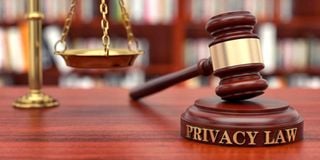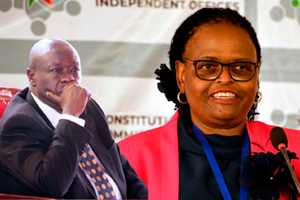Protect privacy in media

Every person has the right not to have the privacy of their communications infringed.
What you need to know:
- The Constitution protects one’s right to property.
- No journalist should search your person, home or property without your consent to find information.
In the February 26 edition of the Daily Nation column “Public Editor’s Notebook”, one of the rules Peter Mwaura cited for unpublishing stories or graphics is compelling legal reasons such as violation of privacy rights. This is a key journalistic principle. The question arises, though, what actions actually show that privacy has been violated?
The Constitution gives the grounds that the law deems a violation of privacy. First, every person has the right not to have their person, home or property searched. No journalist should search your person, home or property without your consent to find information — even if it’s a vital lead for a big story.
Secondly, the Constitution protects one’s right to property. No person should arbitrarily deprive you of your property, journalist or otherwise — unless by way of a court order, as evidence for a court case.
Thirdly, every person has the right not to have information relating to their family or private affairs unnecessarily required or revealed. Having your family or private matters shared to the public can be quite upsetting. Journalists should stick to the issues relevant to the story and not reveal private affairs.
Privacy rights
Fourthly, every person has the right not to have the privacy of their communications infringed. For example, a journalist cannot bug your phone or intrude on your emails or messages.
Moreover, even the “Code of Conduct for the Practice of Journalism in Kenya” protects privacy rights. It states that the public’s right to know shall be weighed against the privacy rights of the people in the news.
Journalists are also discouraged from making inquiries or intrusions into a person’s private life without their consent. Matters concerning a person’s home, family and personal life are also off limits — unless if it is in the public interest.
Journalists have the duty to report to the people, but not at the expense of privacy rights violation. The key is to bring a balance between the people’s right to know and the protection of privacy rights.




